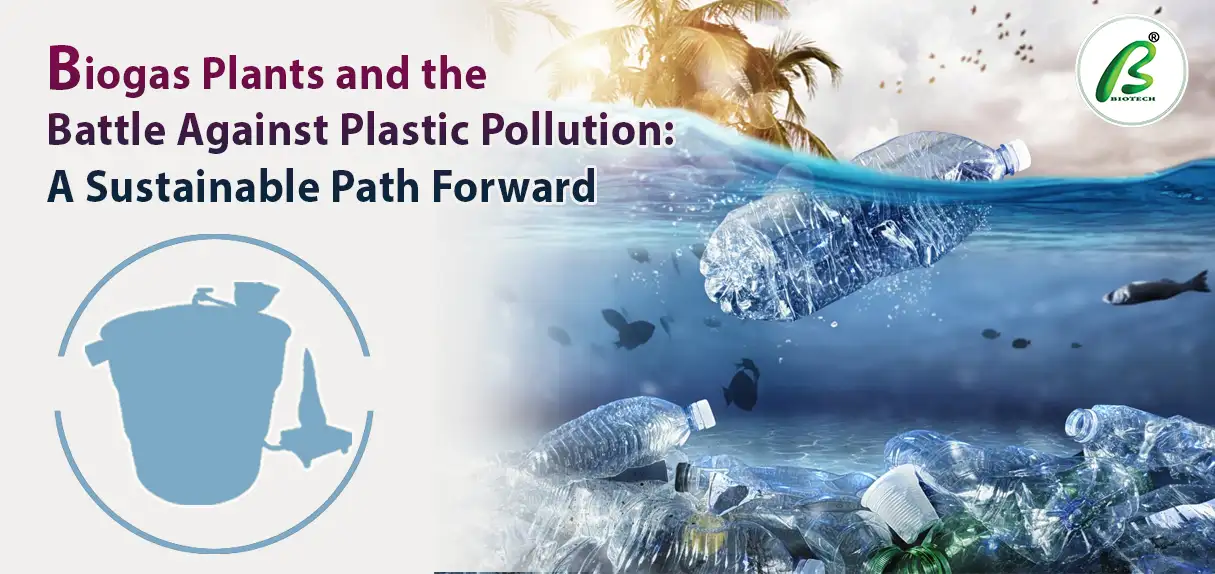
By Dr. A. Sajidas
Managing Director, BIOTECH INDIA Renewable Energy
International Consultant for Biogas, Organic Waste Management & Sustainable Development
World Environment Day 2025 brings an urgent call to action under the theme: "Beat Plastic Pollution". While the world reels under the mounting crisis of plastic waste choking ecosystems, oceans, and even our food chains, it is essential to recognize the interconnected role of waste management, renewable energy, and sustainable development in addressing this crisis. Among the many tools at our disposal, biogas plants-particularly those designed to manage organic waste-emerge as powerful agents in reducing plastic pollution at its very source.
At BIOTECH INDIA, we have dedicated over three decades to the cause of decentralised organic waste management and the development of innovative biogas systems that are scalable, community-friendly, and ecologically responsible. With more than 31 years of experience and projects spanning across varied geographies, our biogas systems not only produce clean energy but also help build a circular economy, reduce the burden on landfills, create employment, and now-more than ever-serve as a barrier against plastic pollution.
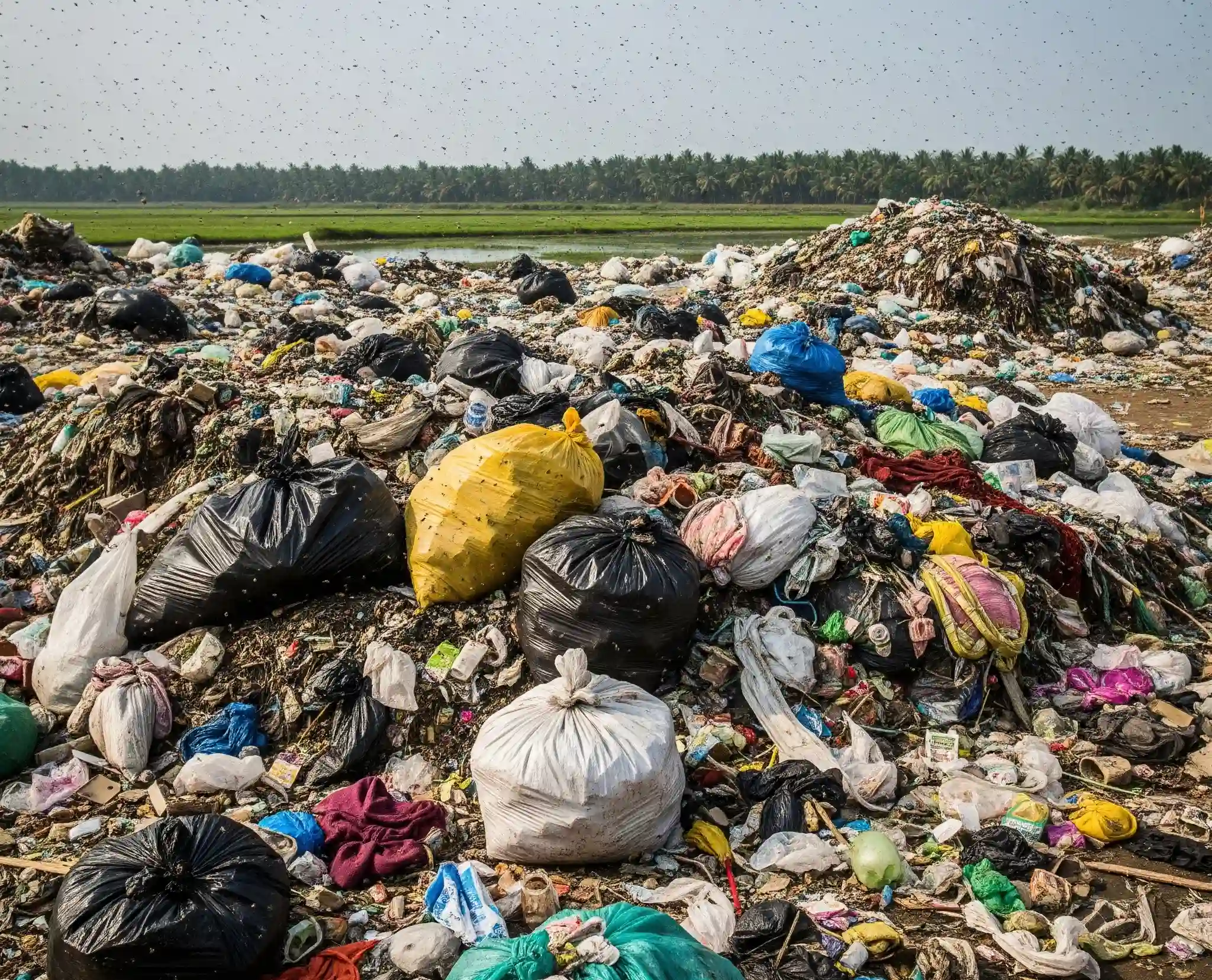
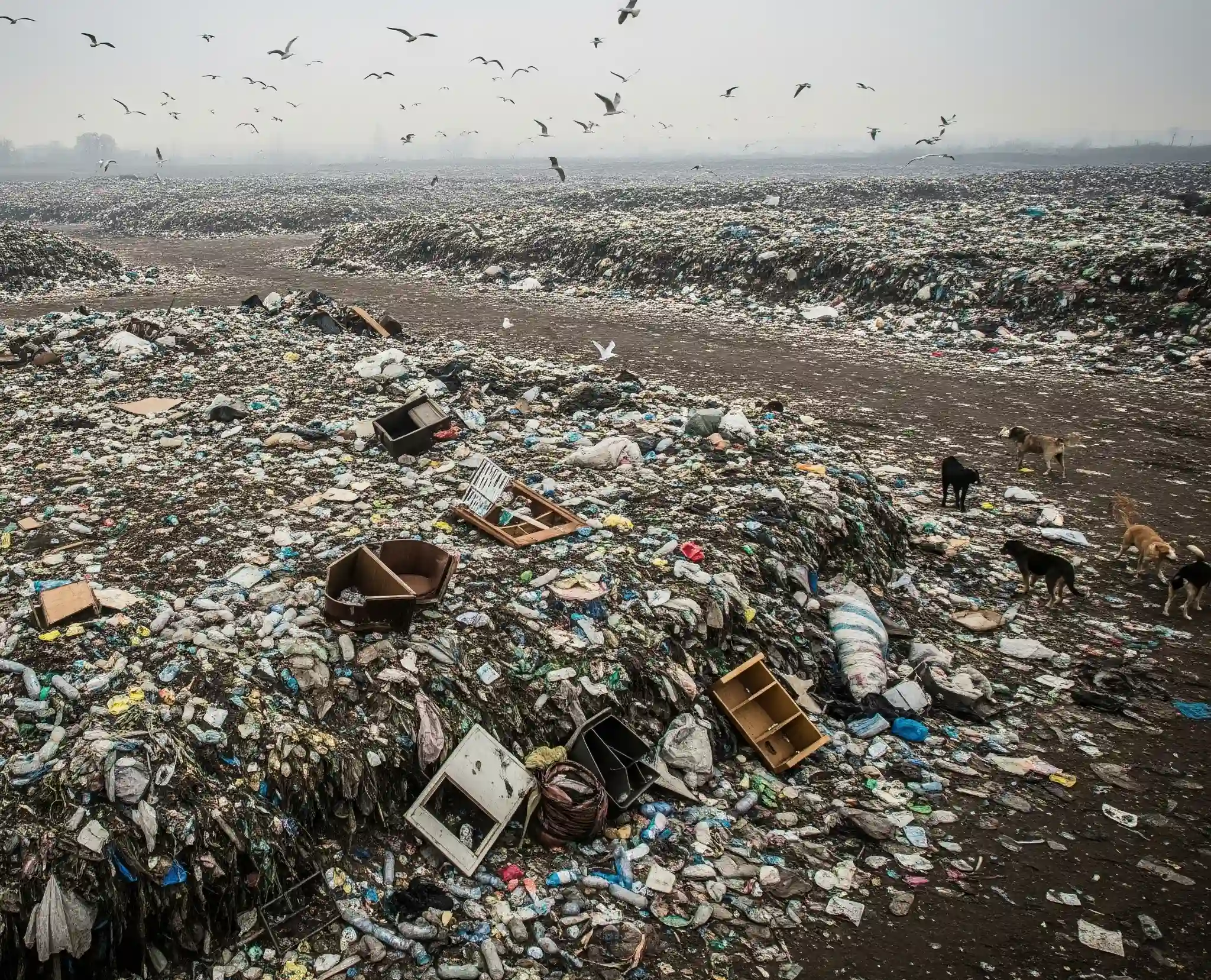
Plastic pollution and organic waste mismanagement are two sides of the same coin. In urban settings, plastic waste is often mixed with organic kitchen waste, complicating segregation and rendering both types of waste unfit for recycling or composting. This toxic mixture ends up in landfills, where it contributes to greenhouse gas emissions, or worse, in water bodies, where plastics break down into microplastics, harming marine life and entering our food chain.
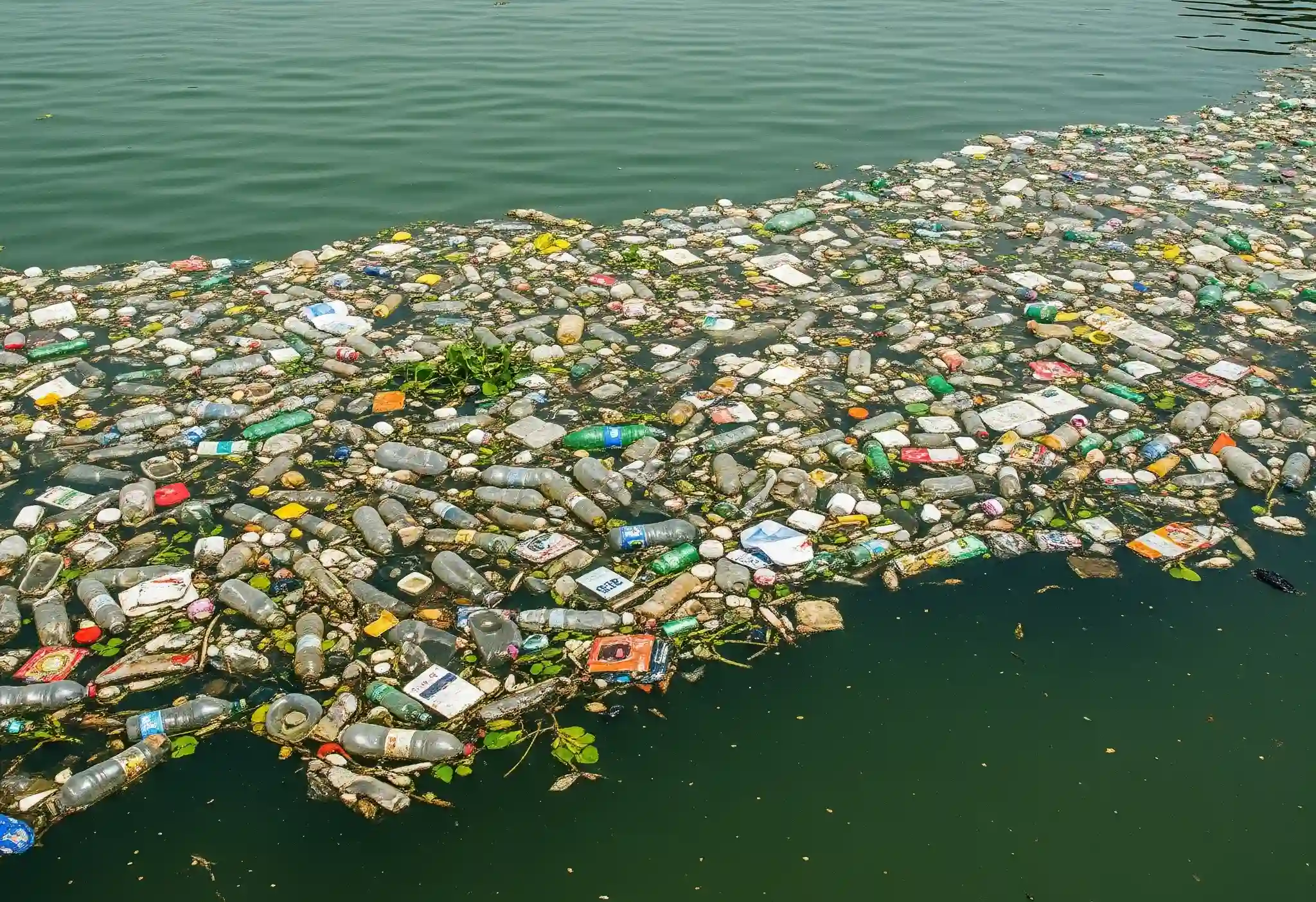
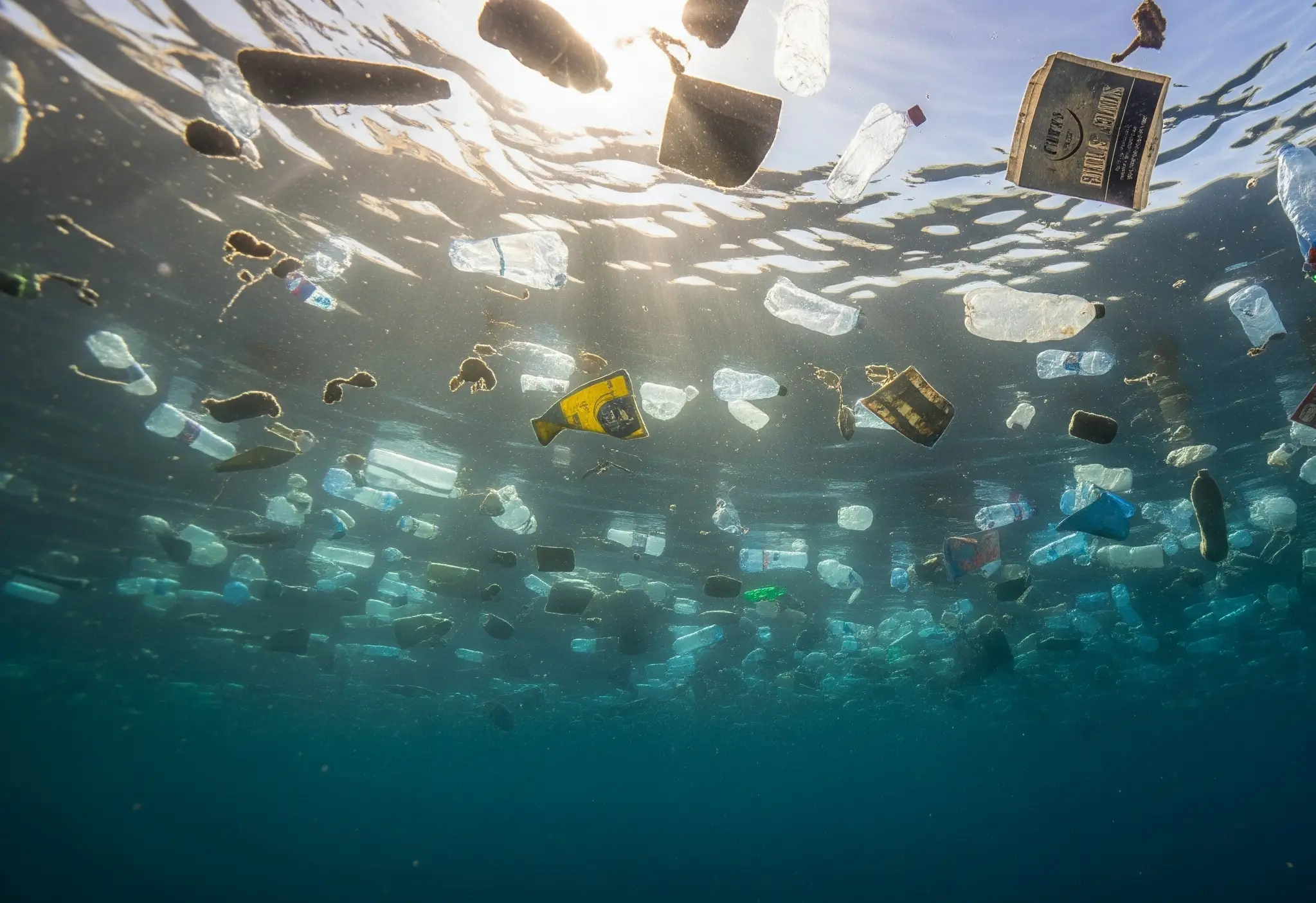
According to UNEP, over 400 million tonnes of plastic are produced globally every year, and less than 10% of it is recycled. A significant portion of this waste is packaging material used for food, which is often contaminated with organic matter. Without effective separation and treatment mechanisms, even recyclable plastic becomes non-recyclable.
This is where biogas plants come in-as front-line defenders against the root causes of plastic pollution.
Biogas plants work by anaerobically digesting organic waste such as food scraps, vegetable peels, leftover food, and even human and animal waste. The process produces methane-rich biogas-an excellent replacement for LPG-and nutrient-rich slurry, which can be used as organic fertilizer.
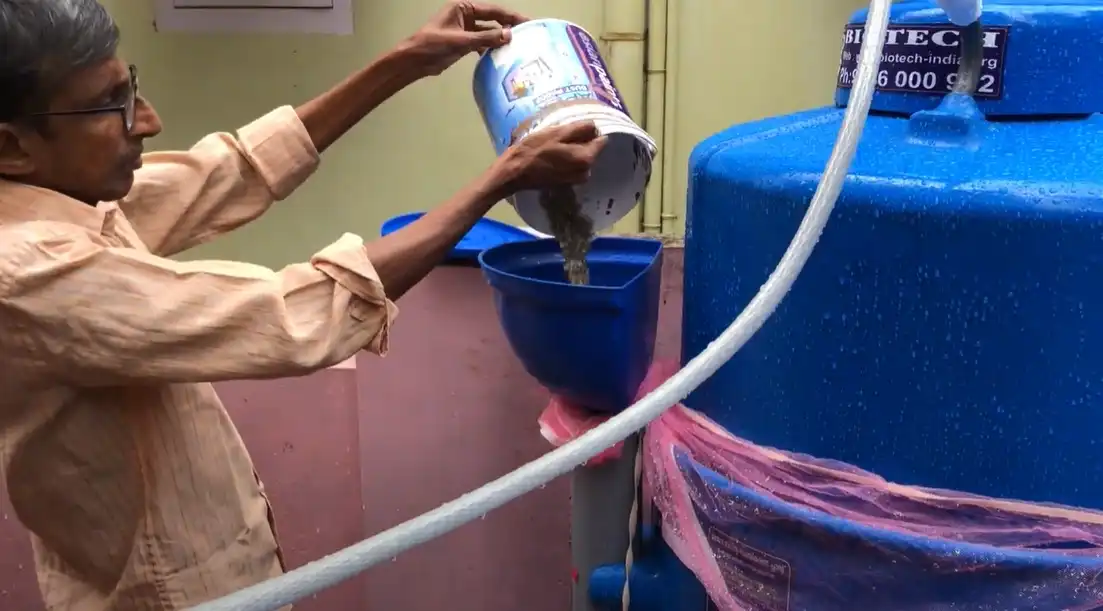
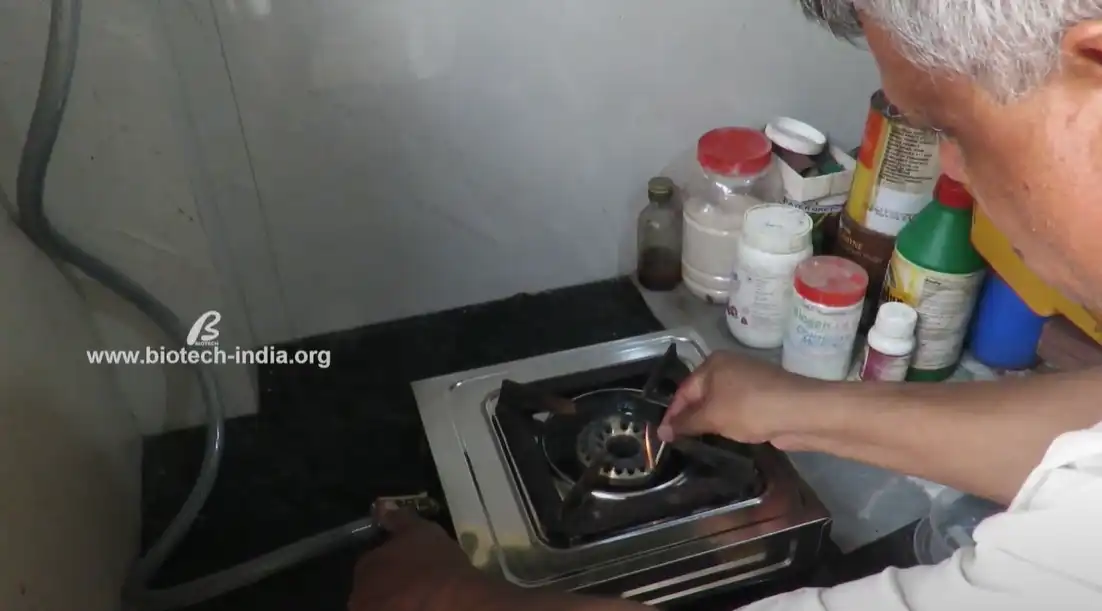
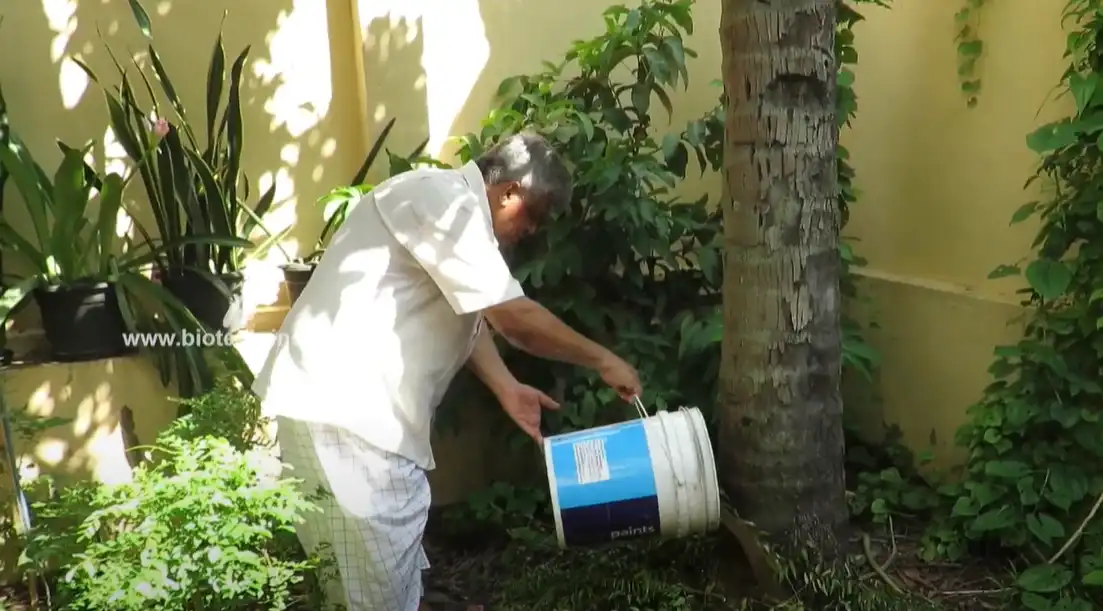
At BIOTECH INDIA, our systems are specially engineered to handle all kinds of organic waste-from individual households to large institutions, community kitchens, markets, and municipal bodies. Importantly, these systems require clean, segregated organic waste, which encourages communities to separate biodegradable matter from non-biodegradable materials like plastic.
This enforced segregation leads to:
→Higher organic waste recovery rates.
→Less plastic contamination.
→Greater plastic recyclability.
→Less waste ending up in landfills and water bodies.
Let's examine specific mechanisms through which biogas plants contribute to the reduction of plastic pollution:
1. Encouraging Waste Segregation at Source
Every biogas system starts with the basic requirement: segregated organic waste. Whether installed in a home, apartment complex, hotel, market, or municipality, the success of a biogas plant depends on proper source segregation. This behavioral shift in waste management leads to a cleaner plastic stream, which is easier to recycle and less likely to be littered or dumped.
2. Reducing Dependency on Plastic-Based Fuel Systems
Biogas systems offer an alternative to conventional fuel sources like LPG and firewood. In many communities, especially rural and peri-urban areas, cooking over open fires often involves using plastic waste as a quick-burning fuel-releasing toxic fumes and microplastics into the air. Biogas replaces this dependency with a clean, safe, and renewable energy source.
3. Minimizing Mixed-Waste Landfilling
When organic and plastic wastes are mixed and landfilled, they decompose anaerobically and emit methane, a potent greenhouse gas. Plastics do not decompose but often release microplastics into the soil and water. Biogas plants divert organic waste from landfills, reducing the total waste volume and the contamination of recyclable plastics, enabling a more effective zero-waste approach.
4. Education and Community Engagement
Our projects at BIOTECH INDIA are deeply community-focused. Every installation is an opportunity to educate local populations about waste segregation, composting, recycling, and plastic avoidance. This awareness is crucial to shifting attitudes and behaviors that perpetuate plastic pollution.
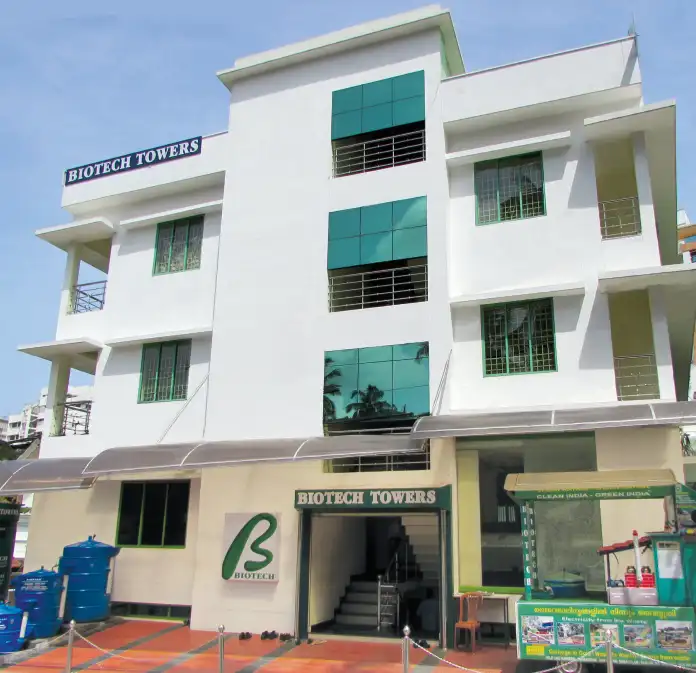
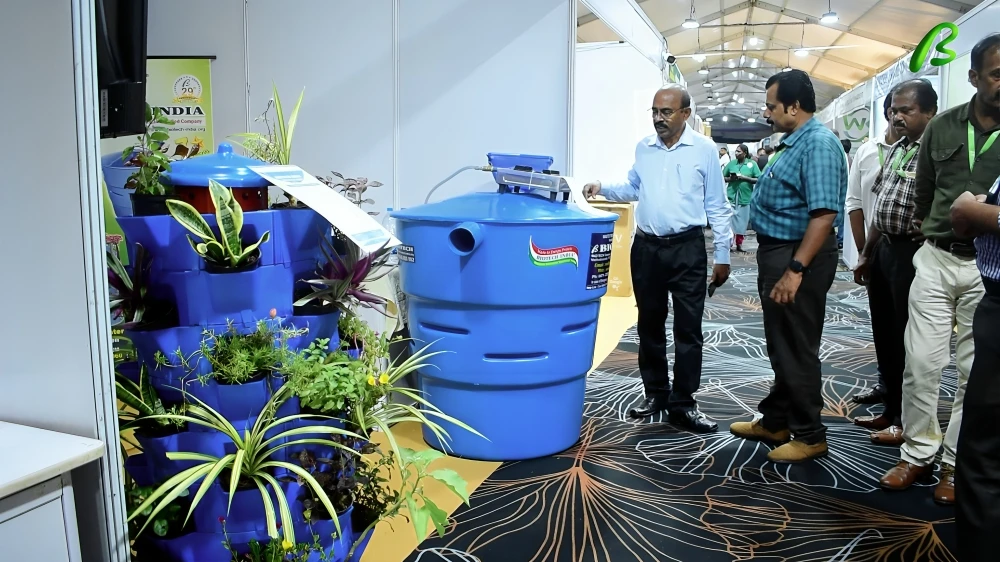
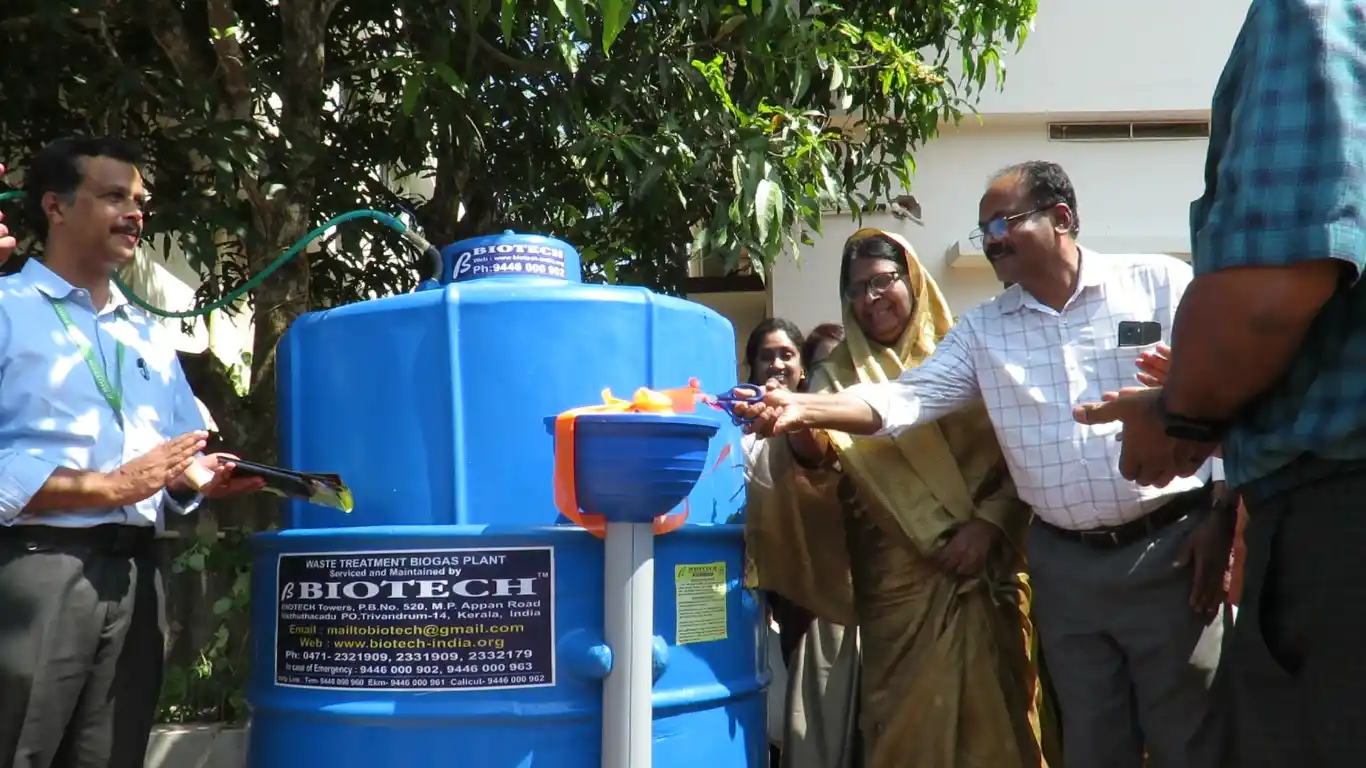
BIOTECH INDIA has always stood at the forefront of environmental innovation. We have developed and deployed thousands of biogas systems in different models and capacities to suit homes, schools, hospitals, temples, restaurants, and even urban municipalities.
Some of our recent contributions include:
→Decentralised biogas plants for cities, reducing municipal organic waste and improving recyclability of dry waste.
→Portable biogas units for disaster-prone and remote regions, enabling safe and sustainable energy access.
→Hybrid systems combining biogas and solar power for net-zero carbon communities.
Our work directly contributes to:
→Climate change mitigation by reducing methane emissions.
→Plastic waste reduction through organic waste diversion and community engagement.
→Circular economy development by converting waste into energy and manure.
→Employment generation through skilled biogas plant operation and maintenance roles.
→Poverty alleviation by reducing fuel expenses and promoting self-sufficiency.
This World Environment Day, the message is clear: To beat plastic pollution, we must fix our waste systems. Organic waste must be treated where it is generated, and plastics must be kept clean and recyclable.
Biogas plants offer a practical, proven, and scalable solution. By decentralising organic waste treatment and promoting source segregation, biogas systems not only reduce plastic contamination but also empower communities to become active stewards of the environment.
At BIOTECH INDIA, we believe that every home, school, and public institution can be a micro-hub of sustainability-producing energy, eliminating waste, and protecting nature.
Plastic pollution is not an isolated problem-it is deeply connected to how we handle all kinds of waste. Biogas technology, when properly implemented, serves as a holistic solution that can reduce both organic and plastic waste footprints.
As individuals, communities, and nations, we must recognize and invest in sustainable waste management systems that support the health of the planet. Biogas is not just a fuel; it is a tool for environmental justice, economic resilience, and ecological restoration.
On this World Environment Day 2025, let us commit to adopting systems that reduce plastic pollution at the root-starting with clean organic waste management through biogas.
Let us turn waste into a resource, and pollution into a solution.
Dr. A. Sajidas
Managing Director, BIOTECH INDIA
International Consultant - Biogas, Organic Waste Management, and Sustainable Development.
Telephone: +91-471-2331909, 2321909, 2332179
E-mail: mailtobiotech@gmail.com


Ernakulam (Cochin)
Telephone: +91-484-4858695
E-mail: mailtobiotech@gmail.com


Kozhikode (Calicut)
Mob : +91-9446-000-962
E-mail: mailtobiotech@gmail.com


Telangana
Telephone: +91 40 29330078 , +919446000968
E-mail: gtp.nird@gmail.com

